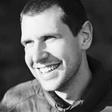We spend two and a half hours on social media and more than three hours watching TV every day. We need to fight the distractions if we want to follow Jesus, says Rick Hill

My wife came home last week to find our 8-year-old son watching TV. She greeted him with a hug and kiss before setting her things in the kitchen. A few minutes later he wandered towards her and asked, “Mum, why haven’t you hugged me yet?” His engrossment levels in the moving images on screen meant he completely missed the physical touch of a loving parent!
But it’s not just that 8-year-old boy, is it?
A generation, distracted
We are a generation distracted by the vast array of advertisements promising satisfaction, the barrage of opinions filling our social media feeds and the endless supply of entertainment options that steal our time. Our culture celebrates choice, but perhaps the options at our fingertips bring us more distraction than satisfaction.
Commentators coined the phrase ‘Continuous Partial Attention’ to describe the modern behaviour of constantly dividing our attention. Watching Netflix while scrolling on our phones. Ordering a coffee while listening to a podcast. Half-listening to a conversation while thinking about what we should say next.
It impacts us spiritually.
People of the screen
In his brilliant book, The Ruthless Elimination of Hurry, John Mark Comer diagnoses the problem of ceaseless activity: “The noise of the modern world makes us deaf to the voice of God, drowning out the one input we most need. I mean, how do we have any kind of spiritual life at all if we can’t pay attention longer than a goldfish? How do you pray, read the scriptures, sit under a teaching at church, or rest well on the Sabbath when every chance you get, you reach for the dopamine dispenser that is your phone?”
Perhaps the options at our fingertips bring us more distraction than satisfaction
We have become people of the screen, the TED talk and the fad. Whether we are aware of it or not, we are being discipled by the world. In our plug-and-play, click-and-collect world, we assume that deliveries come today and change happens overnight. But we need to be disciples who don’t just settle for quick fixes. While society shapes us to view the visible things as those which define success - from social media profiles and Instagram filters to impressive programmes and counting numbers in our churches - none of these build discipline or depth in discipleship.
Discipleship is the lifelong journey of God teaching us, one lesson at a time, to develop our characters in a way that helps us become more like Jesus. Change doesn’t come overnight. There is no secret formula to follow, but there are habits that help us grow spiritually in every area of life. They aren’t new, in fact they have been around for thousands of years, but they will help us to get out of old ruts and form new grooves when given a central place in our lives.
Learning ‘unforced rhythms’
What if the last year was an opportunity to step back from some of the good things we did, in order to refocus on the best things that are still to come? What if this has been an opportunity to stop building and start bowing? What if we don’t just find rest but experience renewal by learning the “unforced rhythms of grace”?
This is a phrase Eugene Peterson uses in his Message translation of Matthew 11:28–30: “Are you tired? Worn out? Burned out on religion? Come to me. Get away with me and you’ll recover your life. I’ll show you how to take a real rest. Walk with me and work with me watch how I do it. Learn the unforced rhythms of grace. I won’t lay anything heavy or ill-fitting on you. Keep company with me and you’ll learn to live freely and lightly.”
Intentional development
It’s time for followers of Jesus to wake from our slumber. We need to be proactive, not reactive; developing intentional, sustainable rhythms that shape us more than the culture around us. It bothers me that we focus more on the start of a faith journey than the next steps. It bothers me that we notice who comes in the front door of our churches but miss those who slip out the back door. It bothers me that those who can flourish in their faith in one season can fizzle out in the next. It bothers me that even those who lead others aren’t immune to falling and failing.
That’s why I have written Deep Roots of Resilient Disciples to help followers of Jesus reflect on the things that contribute most to spiritual formation. Through it, I offer key principles and practices that contribute to a life of lasting discipleship.
Whether we are aware of it or not, we are being discipled by the world
If we are to truly build emotionally healthy churches and communities, it will require us to offer our most precious resources: our time and attention. Often, we have measured spiritual effectiveness through activity rather than intimacy, focussing on doing things for people over being with people.
We need to address the imbalance of program over presence by learning to rest in Jesus, paying attention to his words and his ways in a culture of distraction. He makes me to lie down, not in harsh terrain, but in green pastures, beside quiet waters (Psalm 23). It is in those unforced rhythms that I remember how safely and securely I am held by the God who loves me. To simply let today be today and learn to breathe, not through the mask of endless activity, but in the beauty of his presence.
Rick’s book, Deep Roots of Resilient Disciples, can be ordered here






































